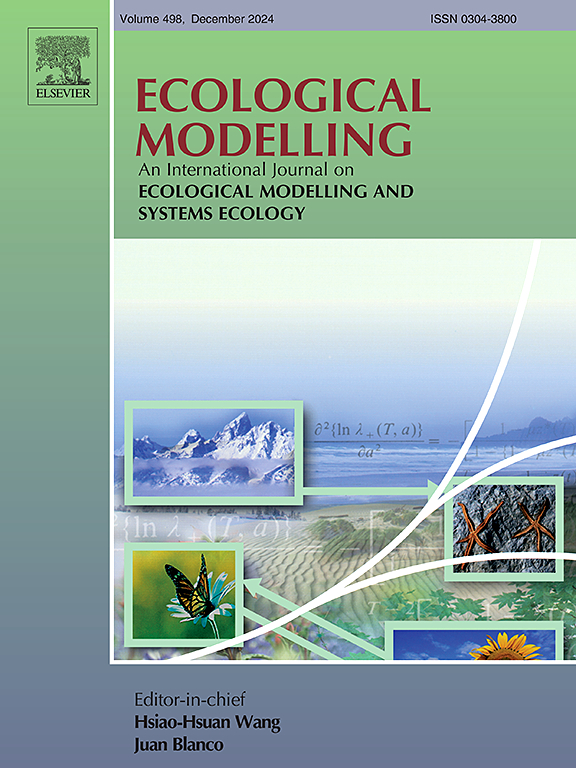Explicit predictions of species richness from net primary productivity: setting and discussion
IF 2.6
3区 环境科学与生态学
Q2 ECOLOGY
引用次数: 0
Abstract
Critical problems in ecology, such as plant species richness and net primary productivity, NPP, are linked with the principal water fluxes of hydrologic sciences, evapotranspiration (plant growth), and run-off (chemical weathering and soil formation). Each of these links is established using modern physics approaches based on percolation theory from complexity studies with the resulting spatio-temporal scaling functions ultimately derived from renormalization-based methods. Approaching such problems from the perspective of the hydrologic fluxes, rather than, e.g., soil moisture content, and using such methods of physics allows application of a direct ecological optimality hypothesis (Darwin-based) regarding maximization of NPP with respect to the fluxes. This procedure opens up possibilities for a wide range of (verified) predictions in (eco-)hydrology as well as a range of discussions on Darwinian and Newtonian perspectives, the value of generalizations from thermodynamics vs. statistical mechanics, simplifications arising from focus on fluxes, rather than state variables, etc., and may provide a foundation for advancing species richness theory as well.
求助全文
约1分钟内获得全文
求助全文
来源期刊

Ecological Modelling
环境科学-生态学
CiteScore
5.60
自引率
6.50%
发文量
259
审稿时长
69 days
期刊介绍:
The journal is concerned with the use of mathematical models and systems analysis for the description of ecological processes and for the sustainable management of resources. Human activity and well-being are dependent on and integrated with the functioning of ecosystems and the services they provide. We aim to understand these basic ecosystem functions using mathematical and conceptual modelling, systems analysis, thermodynamics, computer simulations, and ecological theory. This leads to a preference for process-based models embedded in theory with explicit causative agents as opposed to strictly statistical or correlative descriptions. These modelling methods can be applied to a wide spectrum of issues ranging from basic ecology to human ecology to socio-ecological systems. The journal welcomes research articles, short communications, review articles, letters to the editor, book reviews, and other communications. The journal also supports the activities of the [International Society of Ecological Modelling (ISEM)](http://www.isemna.org/).
 求助内容:
求助内容: 应助结果提醒方式:
应助结果提醒方式:


